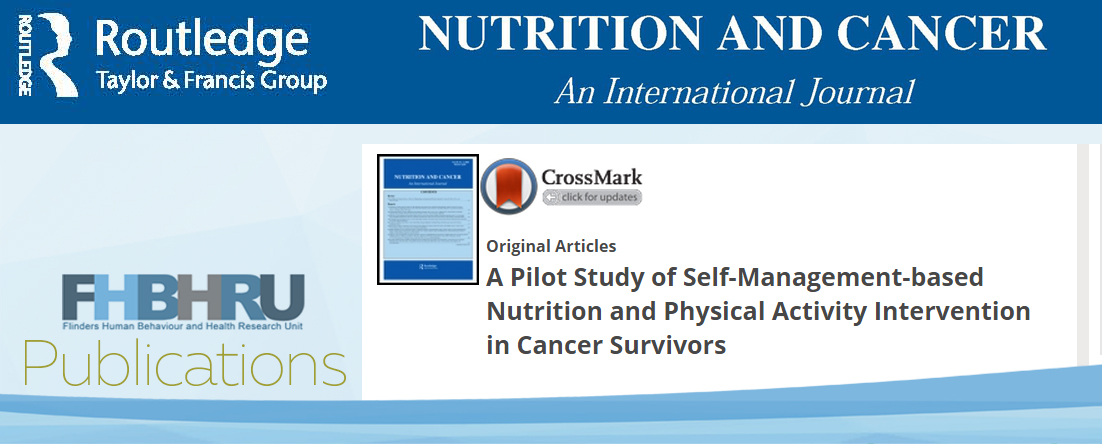
A pilot study of self-management-based nutrition and physical activity intervention in cancer survivors.
A pilot study of self-management-based nutrition and physical activity intervention in cancer survivors. – Michelle Miller, Stephanie Zrim, Sharon Lawn, Richard Woodman, Stephanie Leggett, Lynnette Jones, Christos Karapetis, Ganessan Kichenadasse, Shawgi Sukumaran,Amitesh C. Roy & Bogda Koczwara.
Nutrition and Cancer – Published 13 May 2016
Abstract
Exercise and a healthy diet are beneficial after cancer, but are not uniformly adopted by cancer survivors. This study reports on the feasibility, acceptability, and effectiveness of a self-management-based nutrition and exercise intervention for Australian cancer survivors. Adult survivors (n = 25) during curative chemotherapy (stratum 1[S1]; n = 11) or post-treatment (stratum 2 [S2]; n = 14) were recruited prospectively from a single center. The Flinders Living Well Self-Management Program™ (FLW Program) was utilized to establish patient-led nutrition and exercise goals and develop a tailored 12-wk intervention plan. Fortnightly reviews occurred with assessments at baseline, 6 and 12 wk. A recruitment and retention rate of 38% and 84% were observed. Both strata maintained total skeletal muscle mass. Small reductions in body mass index, hip circumference, and percentage body fat, and small increases in hand grip strength and exercise capacity among subjects in both strata were observed. No significant differences were observed between strata; however, significant increases in exercise capacity and global health status for S2 were observed from baseline to 12 wk. FLW Program is a feasible mode of delivering nutrition and exercise intervention to cancer survivors and it appears that there are no barriers to implementing this program early during chemotherapy. Hence, the additive effect of gains achieved over a longer duration is promising and this should be explored in randomized controlled trials adequately powered to observe clinically and statistically significant improvements in relevant outcomes.
Read the full journal article here: http://www.tandfonline.com/doi/abs/10.1080/01635581.2016.1170169
